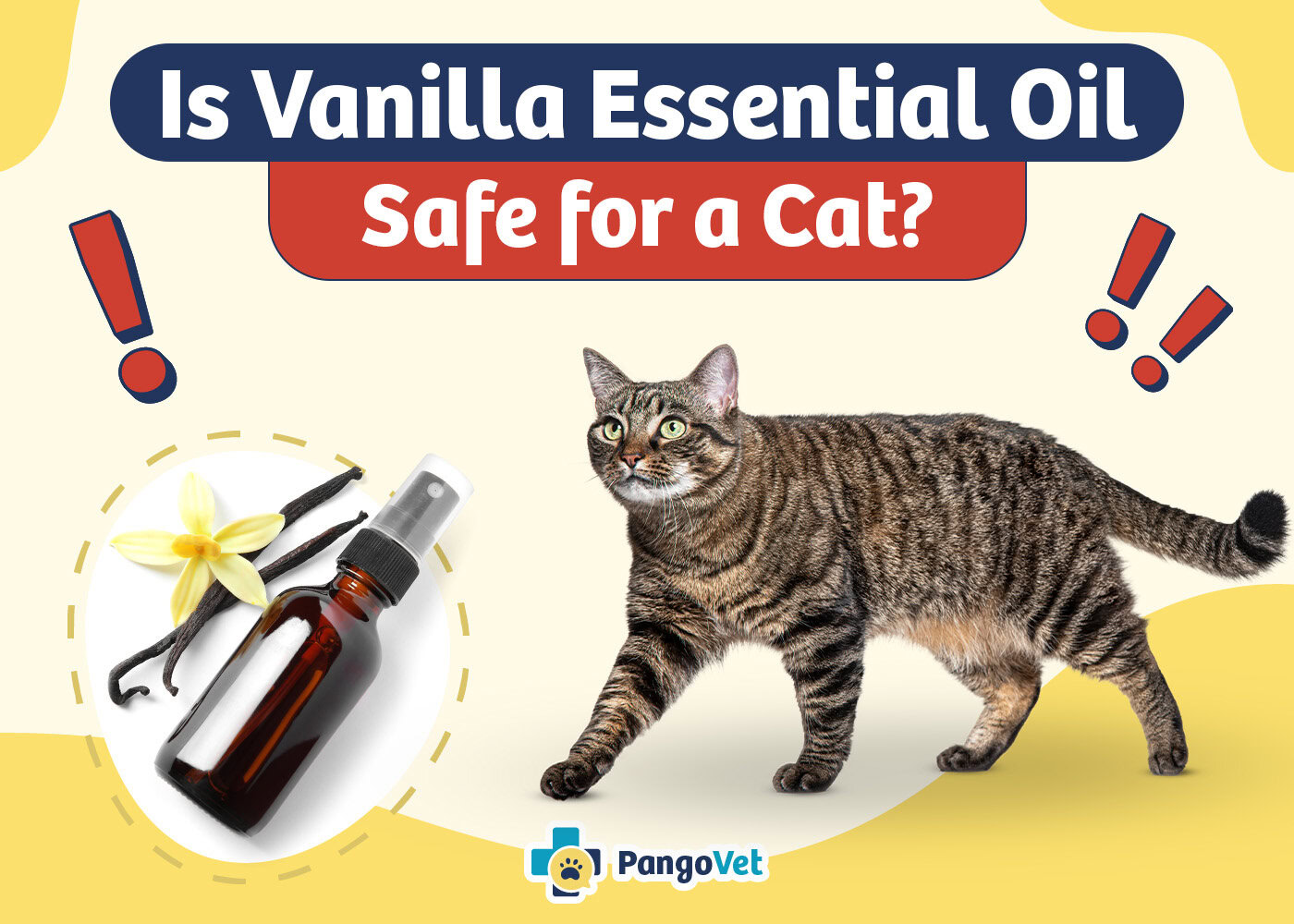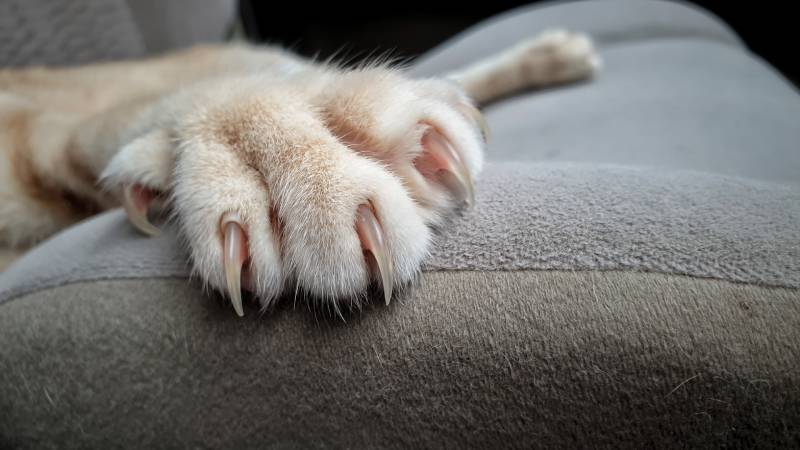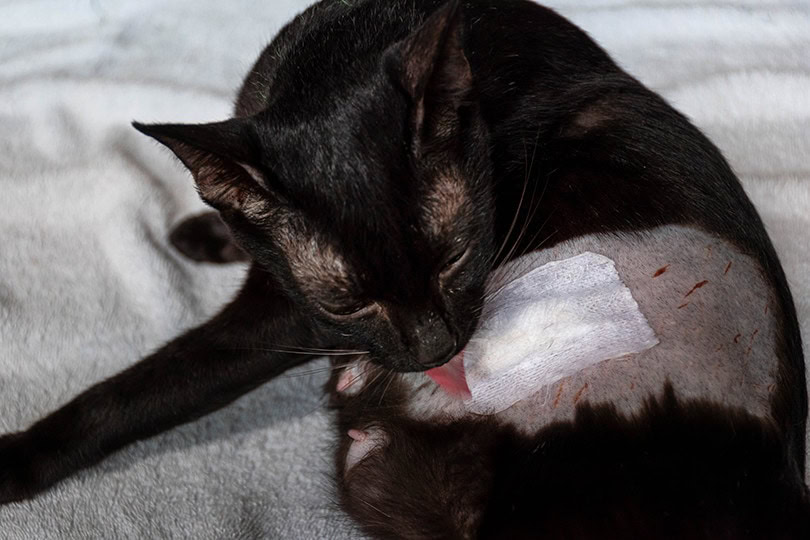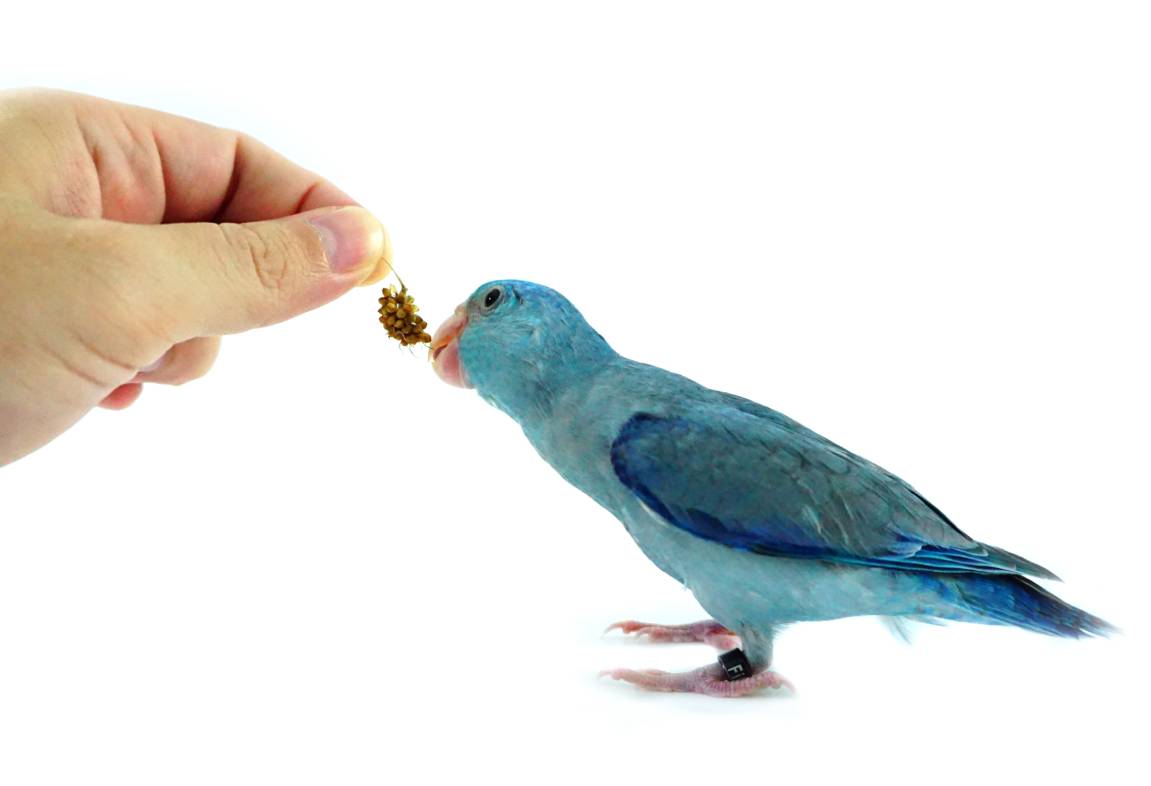VET APPROVED

The information is current and up-to-date in accordance with the latest veterinarian research.
Learn more »Click to Skip Ahead
If you’ve used a diffuser with vanilla essential oil and noticed sudden signs of drooling, respiratory distress, or weakness, your cat may be experiencing an adverse reaction to it. We strongly urge you to take your pet to the vet or an emergency veterinary clinic for immediate care. Your pet may have had an allergic reaction to the essential oil or poisoning if they ingested it.
We recommend not using these products around your cat, as the phenolic compounds in essential oils usually cannot be safely metabolized by cats and can have toxic effects.

Contact Reactions
Contact dermatitis describes an allergic reaction to a substance when an animal comes in contact with it. It can happen with direct application of the essential oil or a product containing it. The former will likely produce a more severe response because they are concentrated forms of the chemicals.
A cat might experience a negative reaction to essential oils, even if you use a diffuser. Tiny droplets of the material released into a room could land on the animal. This can trigger an immune response, causing inflammation. Other negative signs include redness, swelling, or scratching. Remember that your pet’s body recognizes it as an allergen and is launching a defense against it.
Felines are perhaps more likely to have a bad reaction than dogs because of their meticulous grooming habits. You may notice these signs around your cat’s mouth and gums. You may also see watery eyes or the animal pawing at its face. If your pet experiences contact dermatitis, it may also lead to more severe responses if it has ingested any vanilla essential oil.
If you are concerned that your cat may have come into contact with essential oils, speak to a veterinarian right away.
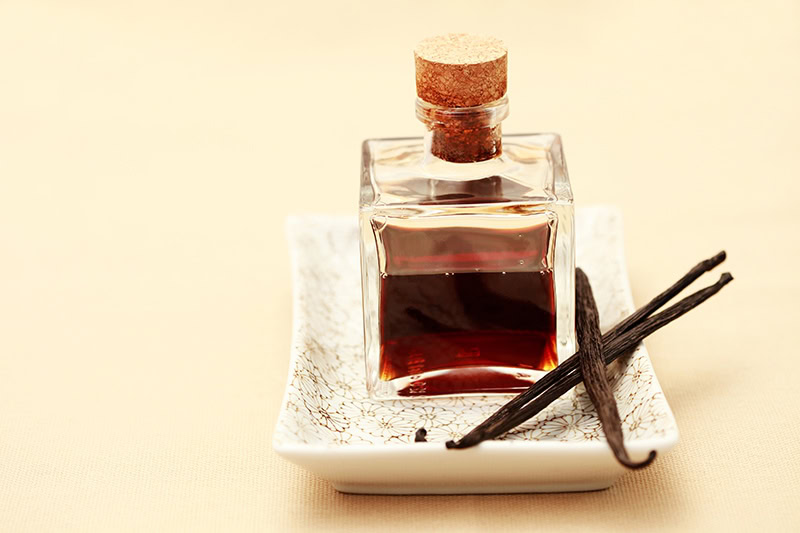
Ingestion Issues
Essential oils are a collection of chemical compounds. Terpenes give them their pleasant scents. Essential oils also contain chemicals called phenolic compounds. They are chemicals produced by plants. They serve various purposes, but when essential oils are ingested by animals, they cannot be safely metabolized and can have toxic effects.
One major difference is a metabolic process called glucuronidation. Organisms use it to break down toxins, waste products, and other substances. It’s not as well developed in cats as they lack specific enzymes, thus, your pet will have a harder time metabolizing any vanilla essential oil and the phenolic compounds it ingests.
Ingestion can lead to more serious and even life-threatening health consequences, such as seizures, low heart rate, vomiting, labored breathing, and liver failure. Of course, much depends on how much your pet has ingested. Sometimes, it may take some time before the signs are apparent.
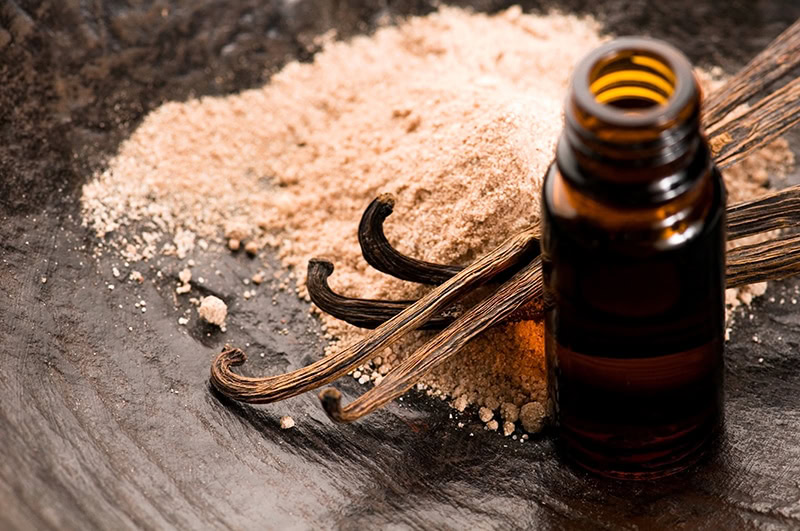
Complicating Matters
Scientists know that some essential oils, such as tea tree, peppermint, and citrus, are particularly toxic to cats. The main obstacle that veterinary medicine faces is the lack of research on this topic. Conducting studies on substances where an animal will likely be harmed or worse is unethical. Sadly, much of what we know comes from case reports of adverse reactions.
However, essential oils all have similar chemical properties. That brings us to a conclusion about using vanilla or any essential oil around your cat. We recommend not using these products around your pet. The stakes are too high to chance it. If you have them in your home, make sure your cat can’t get to them and only use a diffuser or similar item in well-ventilated rooms that your cat cannot access.
Remember that your pet has a keen sense of smell. What may seem a light fragrance to you is usually sensory overload for your cat. That’s not hard to fathom, given that felines have 40 times more scent receptors than humans. Think of how you might feel seated next to someone wearing too much perfume or cologne. Now, imagine what your cat is experiencing.

Final Thoughts
We understand how pleasant many people find the scent of vanilla. It reminds us of homemade cookies baking in the oven and other good memories. Unfortunately, enjoying vanilla essential oil alongside our feline companions isn’t a good idea. Using these scented products in your bath or skincare routine is a wiser option if you absolutely feel that you must use them.
Featured Image Credit: Gayvoronskaya_Yana, Shutterstock
